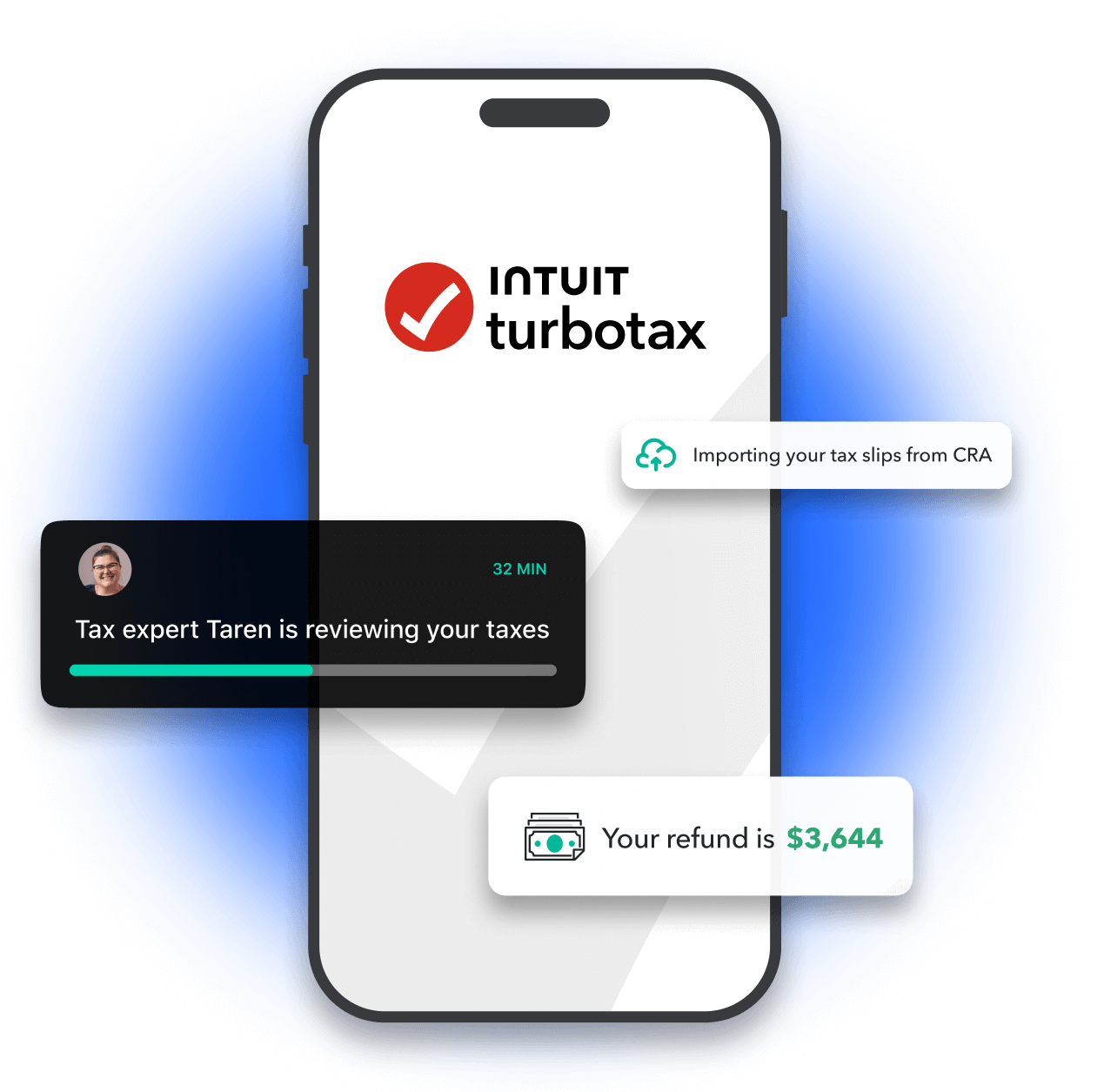2024-25 Alberta Income Tax Calculator
2025 Alberta Income Tax Calculator
Estimate your 2024 income after tax, tax refund, or taxes owed.
Estimate your 2024 income after tax, tax refund, or taxes owed.
| Total income | $0 |
|---|---|
| Federal tax | $0 |
| Provincial tax | $0 |
| CPP/EI Premiums | $0 |
| Total tax | $0 |
| After-tax income | $0 |
| Average tax rate | 0.00% |
| Marginal tax rate | 0.00% |
Assist & Review
Prepare and file your taxes, with unlimited expert help. Same price, no matter your tax complexity.
$70-150
per return
Unlimited expert help*
Connect with an expert via chat or video as you prepare your return. Plus, get help and audit support after filing.
Peace of mind
Have an expert do a final review of your return before you file to make sure it’s 100% accurate, guaranteed*.
Guidance for life changes
Had a big life change that impacts your taxes? We’ll make sure it’s correctly reported.

Alberta tax brackets 2024
Here are the tax brackets for Alberta and Canada based on your taxable income.
| Federal tax bracket | Federal tax rates |
|---|---|
| $55,867 or less | 15.00% |
| $55,868 to $111,733 | 20.50% |
| $111,734 to $173,205 | 26.00% |
| $173,206 to $246,752 | 29.00% |
| more than $246,752 | 33.00% |
| Alberta tax bracket | Alberta tax rates |
|---|---|
| $148,269 or less | 10.00% |
| $148,270 to $177,922 | 12.00% |
| $177,923 to $237,230 | 13.00% |
| $237,231 to $355,845 | 14.00% |
| more than $355,845 | 15.00% |
Frequently asked questions
Alberta's most popular tax credits and deductions include:
Anytime you invest your money into something that increases in value, such as stocks, mutual funds, exchange-traded funds (ETFs), or real estate, that increase is considered a capital gain.
Your capital gains will only be realized and taxable when you cash in your investment. Only 50% of your realized capital gains are taxed at a marginal rate based on your province of residence.
In Alberta, your capital gains are taxed according to the combined marginal capital gains tax rates below:
| 2024 taxable income | AB marginal capital gains tax rate |
|---|---|
| first $148,269 | 10% |
| over $148,269 up to $177,922 | 12% |
| over $177,922 up to $237,230 | 13% |
| over $237,230 up to $355,845 | 14% |
| over $355,845 | 15% |
The tax rates in Alberta range from 10% to 15% of income and the combined federal and provincial tax rate is between 25% and 48%.
Alberta's marginal tax rate increases as your income increases so you pay higher taxes on the level of income that falls into a higher tax bracket.
Learn more about Alberta’s marginal tax rate
Alberta residents receive a tax credit called the Climate Action Incentive Payment (CAIP) when they file their income tax returns to help off-set the federal carbon tax (i.e. fuel charge) that’s added directly to the cost of gas.
The CAIP amount you receive is based on the size of your family.
Learn more about the Alberta carbon tax rebate
The amount of tax your employer deducts from your paycheque varies based on where you fall inside the federal and Alberta tax brackets.
Federal income tax rates in 2024 range from 15% to 33%. Alberta income tax rates in 2024 range from 10% to 15%.
The amount of income tax that was deducted from your paycheque appears in Box 22 of your T4 slip.
Learn more about income tax withholding
The deadline to file your 2024 income tax return in 2025 is midnight on April 30. If you're self-employed, your tax return is due on June 16, 2025, since June 15 falls on a Sunday.
Learn more about tax deadlines
The CRA's goal is to send the notice of assessment, as well as any refund, within 2-3 weeks if filed via NETFILE.
For mailed or paper returns, refunds are issued in 8 weeks following receipt of the return by the CRA or the Revenu Quebec.
*These timelines apply only to returns that are received on or before the due date.
Learn more about tax refunds
If you have to pay income taxes to the CRA, you can do so If you have to pay income taxes to the CRA, you can do so online through the CRA’s My Payment online portal. Pay by setting up a pre-authorized debit agreement using CRA My Account or through a third-party service provider with credit card, e-transfer, or PayPal.
Learn more about paying your taxes online
If you're a resident of Canada for any part of the year and are earning income, whether that's employment, self-employment, investment or other income, you're subject to Canadian income tax. There are no exemptions for age or occupation.
Learn more about who’s required to file an income tax return
The CRA requires that you retain your records for a minimum of 6 years, by law.
If you file an income tax return late, you must keep your records for six years from the date you file that return.
You can ask to amend your tax return for up to the previous 10 years, so it's a good idea to maintain your records for that long.
Learn more about maintaining your income tax records

Expert tips to get your best refund
How much tax is deducted from a paycheque?
Understand how payroll deductions are calculated.
Personal income tax deductions in Canada
Be aware of all the deductions that are available to you.

Expert tips to get your best refund
Do your taxes with the TurboTax mobile app
Work on your tax return anytime, anywhere. TurboTax is available for Apple iOS and Google Android devices.

Provincial tax calculators
Provincial tax calculators
See our tax experts across Canada
* Important Offer Details and Disclosures
TURBOTAX ONLINE/MOBILE OFFERS & PRICING
The following TurboTax Online offers may be available for tax year 2024. Intuit reserves the right to modify or terminate any offer at any time for any reason in its sole discretion. Unless otherwise stated, each offer is not available in combination with any other TurboTax offers. Certain discount offers may not be valid for mobile in-app purchases and may be available only for a limited period of time.
- Pay When You File: For paid TurboTax online and mobile offerings, with the exception of TurboTax Live Full Service, you may start using the tax preparation features without paying upfront, and pay only when you are ready to e-file, print, file by mail, or purchase add-on products or services. Actual prices for paid versions are determined based on the version you use and the date and/or time you print or e-file, and are subject to change without notice. If you use TurboTax Live Full Service, you will be charged when you first sign up for the service, before our experts start work on your return.
- TurboTax Online Free: Simple personal tax returns only. You understand and agree that the free version or edition of the Services does not include all tax forms, and Intuit does not provide technical support for free versions or editions of the Services. You must choose a version or edition of the Services that includes all of the tax forms you need, which may require you to upgrade to a different, paid version of the Services in order to complete and file your tax returns. A simple personal tax return only includes certain limited types of income and certain limited tax credits. See Terms of Service for details.
- Assist and Review $60 Offer: Offer is valid for customers with a new Intuit account who did not file with a TurboTax product for their tax year 2023 return. Must file by offer expiration date on April 15, 2025. Audit Coach and Extended Expert Coverage are available for tax year 2024 returns until December 2027. Unlimited access to experts subject to availability during hours of operation. Offer cannot be combined with any other TurboTax offers.
- 25 Or Under $20 Offer: Offer applies to the cost of (i) upgrading to Assist & Review from TurboTax Online Free, or (ii) TurboTax Deluxe, Premier, and Self-Employed, with optional upgrade to Assist & Review at no additional cost. For 2024 personal taxes only. To be eligible, customer must be born on or after January 1, 1999 and file their personal tax return by April 30, 2025. For spousal returns (which count as 2 returns), both spouses must be of eligible age to qualify for offer. Excludes TurboTax Full Service, TurboTax Desktop, and TurboTax U.S. products. Offer cannot be combined with any other TurboTax offers.
TURBOTAX ONLINE/MOBILE
- Anytime, anywhere: Internet access required; standard data rates apply to download and use mobile app.
- Expert Availability: TurboTax experts are typically available from 9 a.m. to 12:00 midnight ET, 7 days a week for English, and 9 a.m. to 9 p.m. ET for French during tax season (from February 24 to April 30, 2025). After April 30, English and French hours of operation will be 9 a.m. to 6 p.m., ET, Monday to Friday (except holidays). Service, area of expertise, experience levels, and wait times vary, and are subject to restriction and change without notice.
- Unlimited Expert Support: Unlimited access to TurboTax Assist and Review and TurboTax Live Full Service experts refers to an unlimited quantity of contacts available to each customer for the duration of the service, but does not refer to hours of operation or service coverage. Service, area of expertise, experience levels, wait times, hours of operation and availability vary, and are subject to restriction and change without notice.
- Audit Defence: Internet connection and acceptance of product update is required to access Audit Defence. Does not include GST/HST and other non-income tax audits and reviews unless the issues are ancillary to the income tax review itself. Includes field audits through the restricted examination of books but does not include the "detailed financial audit".
- Customer Testimonials: Testimonials are based on TurboTax Online reviews from tax year 2023 as well as previous tax years.
- TurboTax Live Full Service - Same Day Service: One-day preparation and filing availability depends on start time, the complexity of your return, is based on average completion time, and may vary based on expert availability. The tax preparation assistant will validate the customer’s tax situation during the welcome call and review uploaded documents to assess readiness and the ability to file same-day. All tax forms and documents must be ready and uploaded by the customer for the tax preparation assistant to refer the customer to an available tax expert for live tax preparation.
TURBOTAX ONLINE GUARANTEES
- Accurate Calculations Guarantee: If you pay a CRA or provincial government penalty or interest due to a TurboTax calculation error, we will reimburse the penalty and interest. You are responsible for paying any additional tax liability you may owe. Claims must be submitted within thirty (30) days of the CRA or provincial government notice date. Additional terms and limitations apply. See Terms of Service for details.
- Maximum Refund Guarantee: If you get a larger refund or smaller tax due from another tax preparation method by filing an amended return, we'll refund the amount paid for our service. TurboTax Free customers are entitled to a payment of $9.99. Claims must be submitted within sixty (60) days of your TurboTax filing date, no later than May 31, 2025. Audit Defence and fee-based support services are excluded. Additional terms and limitations apply. See Terms of Service for details.
- Expert Approved Guarantee: If you pay a CRA or provincial government penalty or interest because of an error that a TurboTax expert made while preparing your return, providing topic-specific tax advice, or reviewing a section, we'll pay you the penalty and interest. Claims must be submitted within thirty (30) days of the CRA or provincial government notice date. Additional terms and limitations apply. See Terms of Service for details.
- TurboTax Live Full-Service Guarantee: Our Full Service Guarantee means your tax expert will find every dollar you deserve. Your expert will only file your return if they know it's 100% accurate and you are getting your best outcome possible. If you get a larger refund or smaller tax due from another tax preparer by filing an amended return, we'll refund the applicable TurboTax Live Full Service purchase price paid. If you have to pay a CRA or provincial government penalty or interest because of an error that a TurboTax tax expert made while acting as the preparer for your return, we'll pay you the penalty and interest. Full Service Guarantee is not available in Quebec. Additional terms and limitations apply. See Terms of Service for details.
- Satisfaction Guarantee: You may use most TurboTax Online services without charge up to the point you decide to print or electronically file your tax return. Printing or electronically filing your return reflects your satisfaction with TurboTax Online, at which time you will be required to pay or register for the product. Additional terms and limitations apply. See Terms of Service for details.
TURBOTAX DESKTOP GUARANTEES
- Accurate Calculations Guarantee: If you pay a CRA or provincial government penalty or interest due to a TurboTax calculation error, we will reimburse the penalty and interest. You are responsible for paying any additional tax liability you may owe. Claims must be submitted within thirty (30) days of the CRA or provincial government notice date. Excludes TurboTax Business Incorporated Edition. Additional terms and limitations apply. See License Agreement for details.
- Maximum Refund Guarantee: If you get a larger refund or smaller tax due from another tax preparation method by filing an amended return, we'll refund the amount paid for our software. Claims must be submitted within sixty (60) days of your TurboTax filing date, no later than May 31, 2025 (TurboTax Home & Business and TurboTax 20 Returns no later than July 15, 2025). Excludes TurboTax Business Incorporated Edition. Audit Defence and fee-based support services are excluded. Additional terms and limitations apply. See License Agreement for details.
- 60-Day Money Back / Satisfaction Guarantee: If you’re not 100% satisfied with your TurboTax Desktop software, you may return your software within sixty (60) days of purchase with a dated receipt for a full refund of the purchase price. Excludes return postage. Desktop add-on products and services purchased are non-refundable. Additional terms and limitations apply. See License Agreement for details.
ADDITIONAL DISCLOSURES:
- Average Refund Amount: $3,644 is the average refund amount Canadian taxpayers received based on tax year 2023 returns filed using TurboTax. Each taxpayer’s refund will vary based on their tax situation.
- Auto-Fill My Return (AFR): Must be signed up for CRA’s My Account service to import into TurboTax. To register, visit https://www.canada.ca/en/revenue-agency.html .
- Canada's #1 best-selling tax software: Based on aggregated CRA NETFILE data for all tax year 2023 TurboTax do-it-yourself tax products.
- CRA Refund Time: Get your tax refund from the CRA as fast as possible by e-filing and choosing to receive your refund by direct deposit. Tax refund time frames will vary. The CRA estimates 2 weeks to issue refunds with e-filed returns, compared to 8 weeks with paper returns.
- NETFILE E-filing: Income tax preparation software companies must seek NETFILE certification from the CRA for tax preparation software products to be used in conjunction with CRA’s NETFILE electronic tax filing service. All TurboTax software products for tax year 2024 are CRA NETFILE certified.
- Returns Filed: Based on CRA NETFILE reporting, more than 25 million returns have been electronically filed with TurboTax over the past 5 years, and more than 50 million returns have been electronically filed with TurboTax from 2013 to 2023. Includes tax returns filed to the CRA using TurboTax Desktop and TurboTax Online products.
- Technical Support: Technical support by phone is free. Long-distance charges may apply. Limitations apply. Intuit reserves the right to limit each telephone contact. Support availability varies by time of year and is subject to occasional downtime for systems and server maintenance, company events, observed Canadian holidays and events beyond our control.
- Images and Screens: Images are for illustrative purposes only, and some screen displays are simulated.
- Expert Cost Comparison: Based on the average cost in 2023-2024 for respondents from nationwide third-party surveys who paid a tax preparer to prepare their personal income tax return (T1), compared with the average cost per return of TurboTax customers purchasing TurboTax Full Service and/or Assist & Review (as applicable) in tax year 2023. Your savings will vary based on your prior tax filing costs and the complexity of your tax returns.
Tax Resources & Information
About TurboTax Software
Other Intuit Products & Services
© 2025 Intuit Canada ULC or its affiliated companies. All rights reserved. Intuit, QuickBooks, QB, TurboTax and ProFile are registered trademarks of Intuit Inc. Terms and conditions, features, support, pricing, and service options subject to change without notice.
Copyright © Intuit Canada ULC, 2025. All rights reserved.


































